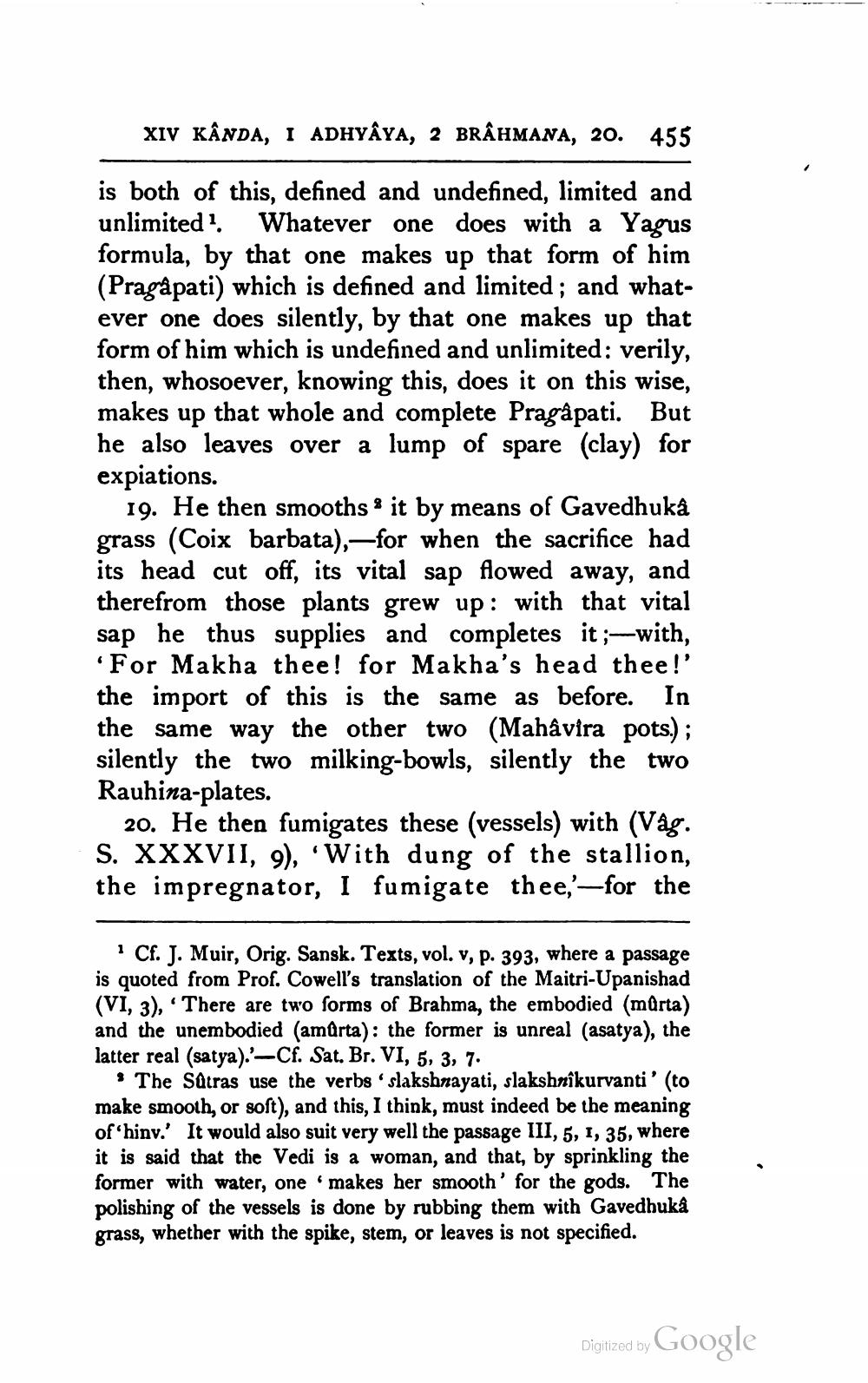________________
XIV KÂNDA, I ADHYAYA, 2 BRÂHMANA, 20.455
is both of this, defined and undefined, limited and unlimited 1. Whatever one does with a Yagus formula, by that one makes up that form of him (Pragàpati) which is defined and limited ; and whatever one does silently, by that one makes up that form of him which is undefined and unlimited: verily, then, whosoever, knowing this, does it on this wise, makes up that whole and complete Pragapati. But he also leaves over a lump of spare (clay) for expiations.
19. He then smooths & it by means of Gavedhuka grass (Coix barbata),—for when the sacrifice had its head cut off, its vital sap flowed away, and therefrom those plants grew up: with that vital sap he thus supplies and completes it ;-with,
For Makha thee! for Makha's head thee!' the import of this is the same as before. In the same way the other two (Mahâvira pots.) ; silently the two milking-bowls, silently the two Rauhina-plates.
20. He then fumigates these (vessels) with (Vâg. S. XXXVII, 9), “With dung of the stallion, the impregnator, I fumigate thee,'—for the
? Cf. J. Muir, Orig. Sansk. Texts, vol. v, p. 393, where a passage is quoted from Prof. Cowell's translation of the Maitri-Upanishad (VI, 3), “There are two forms of Brahma, the embodied (mûrta) and the unembodied (amûrta): the former is unreal (asatya), the latter real (satya).' -Cf. Sat. Br. VI, 5, 3, 7.
* The Sätras use the verbs slakshnayati, slakshnîkurvanti' (to make smooth, or soft), and this, I think, must indeed be the meaning of‘hinv. It would also suit very well the passage III, 5, 1, 35, where it is said that the Vedi is a woman, and that, by sprinkling the former with water, one makes her smooth' for the gods. The polishing of the vessels is done by rubbing them with Gavedhukå grass, whether with the spike, stem, or leaves is not specified.
Digitized by Google




